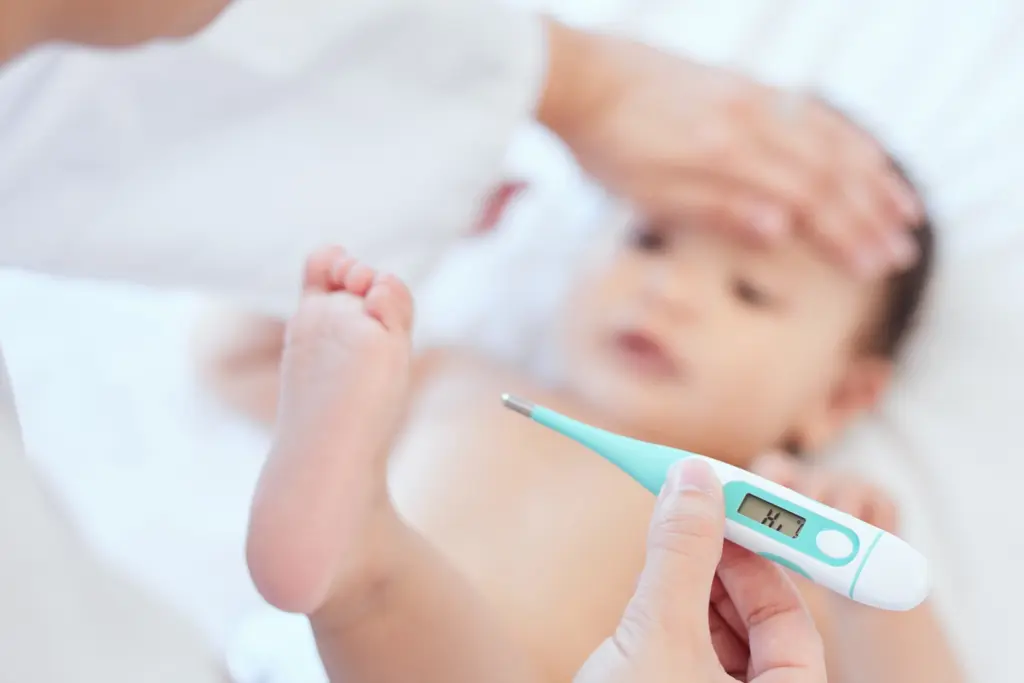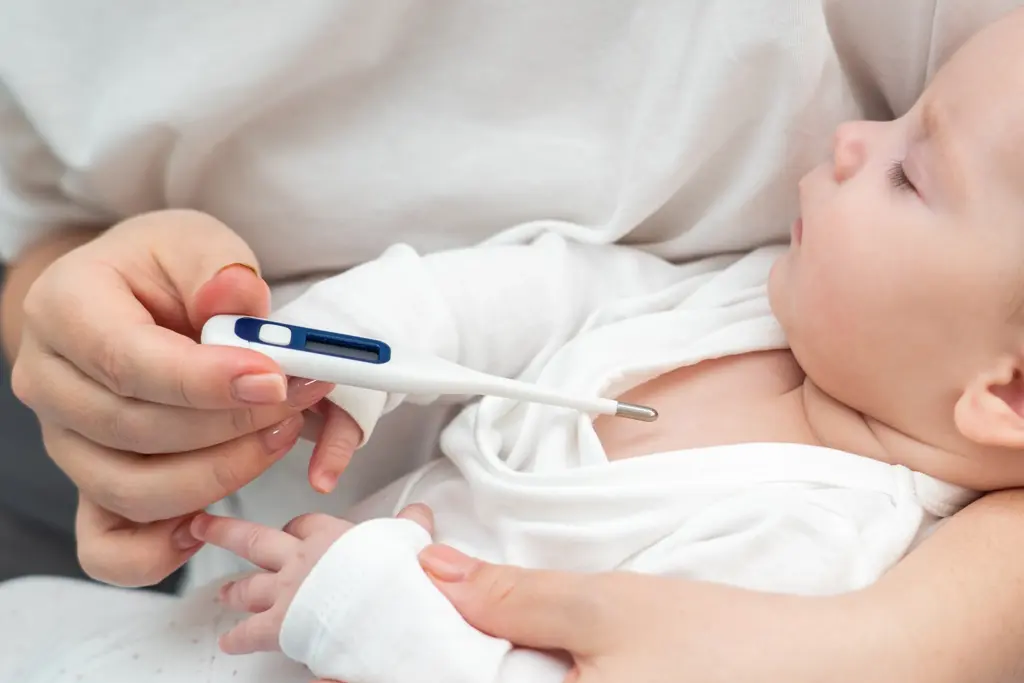
Fever in babies: When your baby feels warm to the touch or seems fussier than usual, the first thought that comes to your mind is, ‘Do they have a fever?’ It’s normal to worry, especially if you’re a new parent.
Fevers in infants can be scary, but often, they are simply a sign that the body is fighting an infection. Still, some situations can be more serious, so knowing when to call the doctor is essential.
Also Read | Why your fever keeps returning: Underlying causes explained
What is a fever?
A fever is your body’s natural defence against infection. It means the immune system is fighting back. In babies, a fever is generally defined as a rectal temperature of 100.4°F (38°C) or higher.
How to take a baby’s temperature?
The most accurate way to take a baby’s temperature is rectally. It can feel awkward, but done correctly, it’s quick and safe. A digital underarm (axillary) reading is an option for older babies, though it’s less precise. Do not use forehead strip thermometers or mercury devices due to poor accuracy and safety concerns.
Common causes of fever in infants:
Fevers can happen for many reasons, and most are not serious. Common causes include:
- Viral infections (like a cold or flu)
- Ear infections
- Urinary tract infections (UTIs)
- Teething (slight temperature rise only, usually not above 100.4°F)
- After vaccinations (mild fevers can happen within 24–48 hours)
- Overheating (too many layers or hot environments)

When is a fever in a baby serious?
Some infant fevers signal serious illness, especially in very young babies. Any fever in an infant under 3 months is an emergency. Even a mild rise can indicate a dangerous infection. Call your doctor or go to the ER. Seek immediate help if your baby isn’t responding normally, seems floppy or unusually quiet, refuses feeds repeatedly or has fast breathing or pulling in at the ribs while breathing.
When to call a doctor for a fever in babies?
| Baby’s age | Temperature | What to do |
| 0-3 months | 100.4°F (38°C) or higher | Call your doctor immediately |
| 3-6 months | 101°F (38.3°C) or higher | Call your doctor immediately |
| Over 6 months | 103°F (39.4°C) or higher | Call your doctor if the fever lasts more than a day or is paired with other symptoms |
If your gut says something’s wrong, listen to it and ring your paediatrician. Infant fevers can be scary, but knowing what to watch for helps. Many are mild and pass in a day or two.
Also Read | How to prevent dehydration during flu or high fever
Fevers in very young babies need prompt medical attention. You know your baby best; when in doubt, it’s safer to check.








